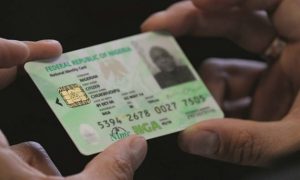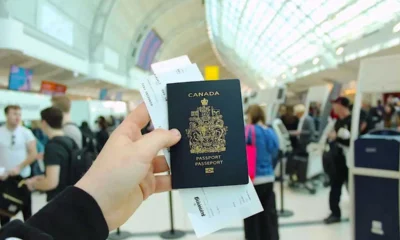Latest News
Top 10 reasons Canadian citizenship applications get rejected, how to avoid them

Canada is a top destination for immigrants, offering a wide range of opportunities and the global mobility that comes with a Canadian passport. With one of the world’s most powerful passports, Canadian citizens can travel to over 180 countries without needing a visa or with visa-on-arrival access.
Although the process of moving from permanent residency (PR) to citizenship is straightforward, some applications are still rejected due to missed requirements or errors. According to Immigration News Canada, here are the top 10 reasons Canadian citizenship applications are rejected, along with tips on how to avoid these common mistakes:
1. Incomplete or Incorrect Application Forms
A common reason for rejection is submitting forms that are incomplete or contain errors. Citizenship applications require detailed and accurate forms. To avoid this, carefully review each form to ensure all sections are filled out and that all information is consistent across your forms and documents. If you’re uncertain, consider consulting an immigration lawyer or consultant.
2. Failure to Meet Residency Requirements
To qualify for Canadian citizenship, applicants must have lived in Canada for at least 1,095 days (three years) in the five years preceding their application. Many applicants fail to meet this requirement by miscalculating their time in Canada or overlooking short trips outside the country. Use the residency calculator on the Immigration, Refugees, and Citizenship Canada (IRCC) website and keep detailed travel records to ensure compliance.
3. Insufficient Language Proficiency
Applicants aged 18 to 54 must show proficiency in one of Canada’s official languages (English or French). Failure to meet the required language standard can lead to rejection. Make sure to take an approved language test (IELTS or CELPIP for English, or TEF for French) and submit valid, up-to-date results with your application.
4. Criminal Inadmissibility
A criminal record, especially for serious offenses, can make an applicant inadmissible to Canada. Applicants must submit police clearance certificates for every country where they’ve lived for more than six months. If you have a criminal record, be transparent and provide all required documents. Depending on the conviction, you may need to wait or resolve legal issues before applying.
5. Failure to Declare All Family Members
Omitting family members, such as spouses, children, or stepchildren, from your application can result in rejection. This includes family members who are not accompanying you to Canada. Ensure you list every family member, regardless of whether they are joining you. Misrepresentation could lead to a ban on future applications.
6. Tax Compliance and Financial Obligations
Applicants must have filed taxes for at least three of the last five years. Failure to meet this requirement can result in a rejection. Ensure that you have filed your taxes for the necessary period. If you’ve missed any filings, make sure to do so retroactively before submitting your application.
7. Misrepresentation or Fraud
Providing false information or fraudulent documents is a serious offense. Misrepresentation can lead to your application being rejected and may involve legal consequences. Always ensure your application is accurate and truthful. If you’ve made an error in a past application, correct it openly.
8. Loss of Permanent Resident Status
You must maintain your permanent resident (PR) status throughout the citizenship process. If your PR status is revoked, your citizenship application will be void. To avoid this, ensure that you meet the residency requirements to maintain your PR status and avoid lengthy absences from Canada that could jeopardize your eligibility.
9. Rejections Due to Previous Applications
A prior rejection for citizenship or PR can affect future applications. Address any past issues before reapplying. If you’ve been rejected, carefully review the reasons and resolve any outstanding concerns. Consulting an immigration expert can help you strengthen your new application.
10. Failing the Citizenship Test
Applicants aged 18 to 54 must pass a citizenship test on Canadian history, values, institutions, and responsibilities. Failing the test results in rejection. Use IRCC’s official study guides and practice tests to prepare. If you fail, you may be given another chance, so be sure to study thoroughly for a better outcome.
What to Know:
If your application is rejected, you have the option to appeal if you believe the decision was unfair. Seeking the assistance of an immigration lawyer can improve your chances during the appeal process.
By following these tips and avoiding these common mistakes, you can significantly improve your chances of obtaining Canadian citizenship.
























